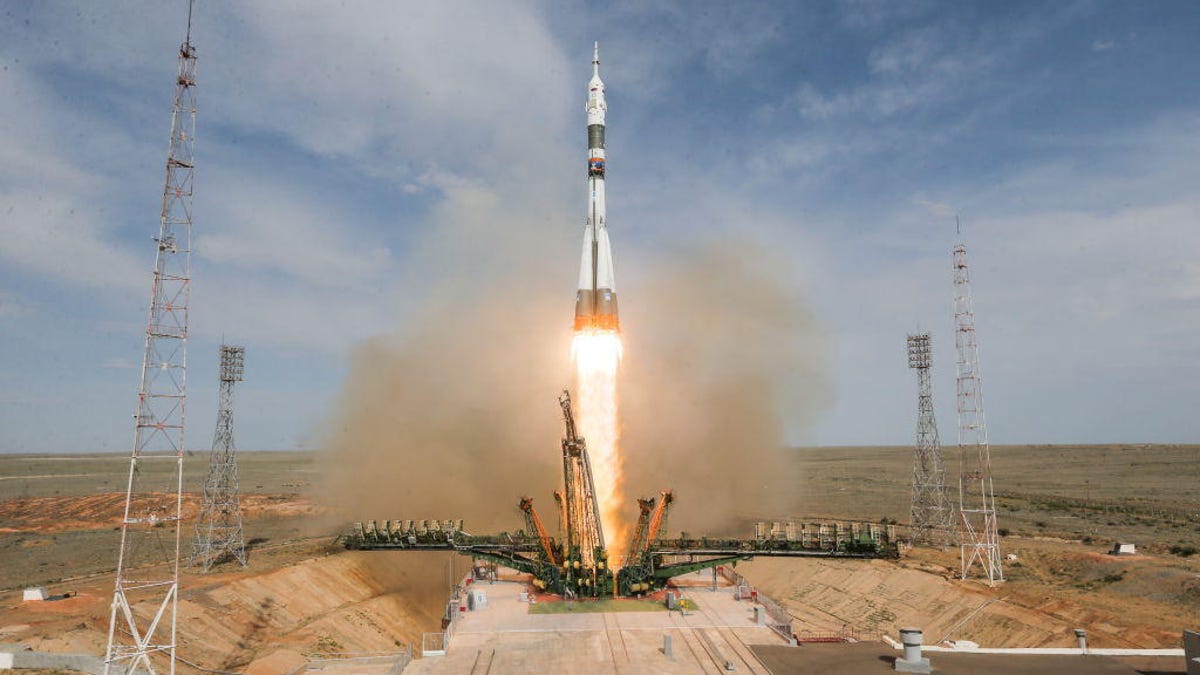NASA astronaut details fall to Earth after failed Soyuz launch
Astronaut Nick Hague talked to media for the first time since surviving an aborted launch to the International Space Station and shared what it was like inside the capsule.

A Soyuz rocket takes off from Baikonur Cosmodrome.
One second NASA astronaut Nick Hague was on his way to space for the first time, the next he was being violently jostled side-to-side as the Soyuz crew capsule he shared with Russian Cosmonaut Aleksey Ovchinin abruptly separated from the rocket booster beneath and shot to the side.
The dramatic procedure took place automatically as safety systems detected an anomaly with the Russian rocket, triggering the midascent, sideways escape maneuver to clear the crew of the failing booster.
In his first interviews since surviving the largely uncontrolled "ballistic descent" back to Earth that followed, Hague told reporters on Tuesday that the launch felt normal for the first two minutes but that it became clear "something was wrong pretty quick."
"Your training really takes over," Hague said, adding that he and Ovchinin had practiced what to do in case of just such a launch-abort scenario.
Hague also credited years of flight training, going back to his days as a US Air Force pilot.
The escape procedure has been compared to being launched sideways out of a shotgun -- but while the shotgun is rocketing upward. Hague described the side-to-side shaking inside the capsule as "fairly aggressive but fleeting."
"I expected my first trip to space to be memorable," he said. "I didn't expect it to be quite this memorable."
Because of the combination of rocket-fueled ascent and the sudden sideways escape maneuver, the crew experienced a higher level of g-forces than during a normal flight. Once the Soyuz reached the top of its arc and began to descend, Hague said, what followed was really the same as a normal Soyuz landing, but with one major difference: The pair couldn't be certain where they were.
"My eyes were looking out the window trying to gauge where we were going to land."
Luckily, the capsule deployed its parachutes and landed on smooth, flat terrain where Hague and Ovchinin were met by rescue helicopters and whisked off for medical evaluations. Both men were fine and soon reunited with their families, though Hague said he initially had a little trouble getting in touch with his wife over the phone.
"It went to voice mail," he said, adding that his wife now has a recorded audio keepsake of his safe return to Earth.
Hague said he's disappointed his first flight to space didn't go as planned, but he's grateful the safety systems and rescue protocols worked so flawlessly. He added that the experience hasn't discouraged him from attempting to go to space again at some point in the future.
NASA turns 60: The space agency has taken humanity farther than anyone else, and it has plans to go further.
Crowd Control: A crowdsourced science fiction novel written by CNET readers.

